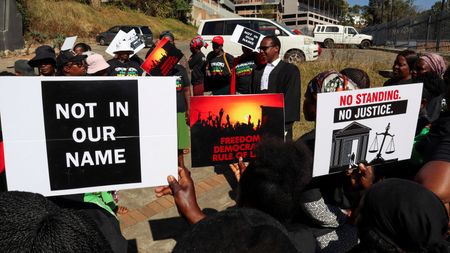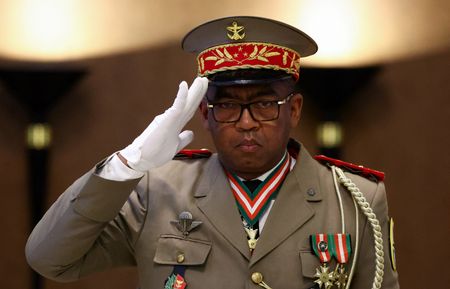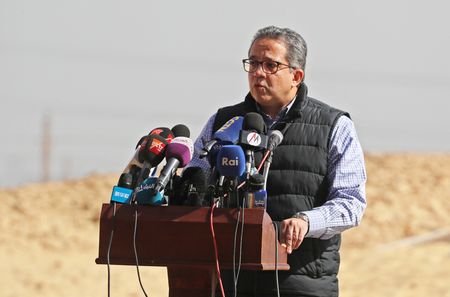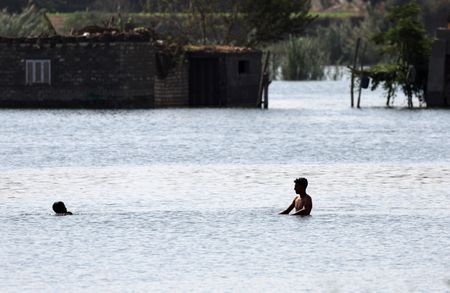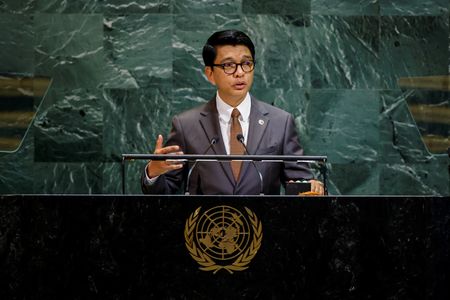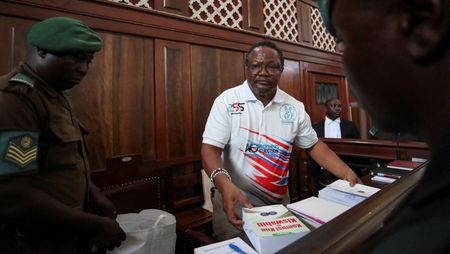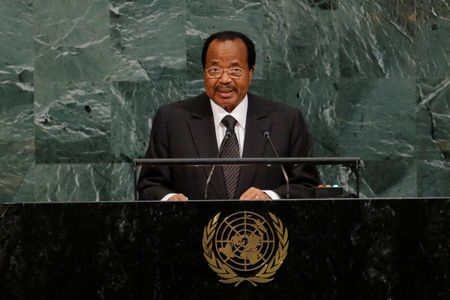MBABANE (Reuters) -U.S. President Donald Trump’s administration sent another third-country deportation flight to the small African nation of Eswatini on Monday, officials from both countries said, the second in recent months despite objections from lawyers for the migrants.
Eswatini’s government said it received 10 third-country deportees, adding to an initial group of five people it received in July. A White House spokesperson confirmed the deportations, saying those removed were serious criminals. Neither government provided the nationalities of the deportees.
U.S.-based immigration attorney Tin Thanh Nguyen said in a statement that the 10 deportees included three people from Vietnam, one from the Philippines, one from Cambodia and five others. Nguyen said he was representing two of those who arrived on Monday and two others previously sent to Eswatini, but was unable to speak with them.
“I cannot call them. I cannot email them. I cannot communicate through local counsel because the Eswatini government blocks all attorney access,” he said in a statement.
Trump aims to deport millions of immigrants who are in the United States illegally, and his administration has sought to ramp up removals to third countries as part of that crackdown. While the Trump administration has said some of the deportees’ home countries would not accept them, some threatened with deportation to another nation were eventually removed to their native countries.
White House spokesperson Abigail Jackson said those deported to Eswatini had been convicted of “heinous crimes,” including murder and rape.
“They do not belong in the United States,” Jackson said.
The first five immigrants deported to Eswatini this year were from Vietnam, Jamaica, Laos, Cuba and Yemen. One man, from Jamaica, has already been repatriated. Two others are expected to be repatriated soon, the Eswatini government said.
Eswatini, a small mountain kingdom bordering South Africa, has not disclosed the terms of its deal with the Trump administration, and is facing a lawsuit from local activists who claim it was illegal.
Legal and human rights activists have also protested the treatment of the deportees, the first group of whom were held in solitary confinement.
The Eswatini department of correctional services said in a statement that it remains “committed to the humane treatment of all persons in its custody.”
The department said the individuals would be kept in correctional facilities until they could be repatriated to their home countries.
(Reporting by Lunga Masuku; Additional reporting by Ted Hesson in Washington and Kristina Cooke in San Francisco; Writing by Nellie Peyton; Editing by Mary Milliken and Lincoln Feast)

